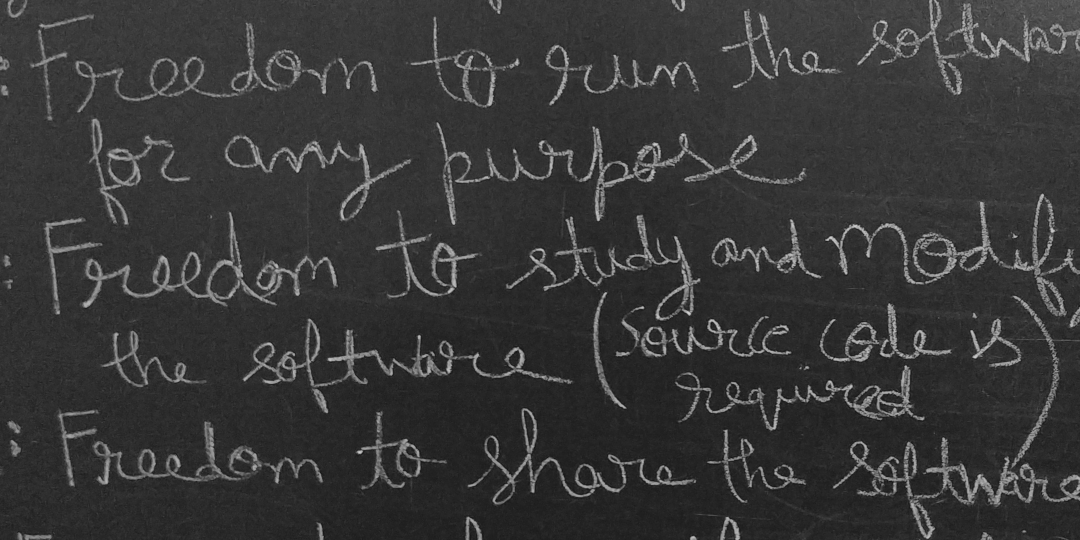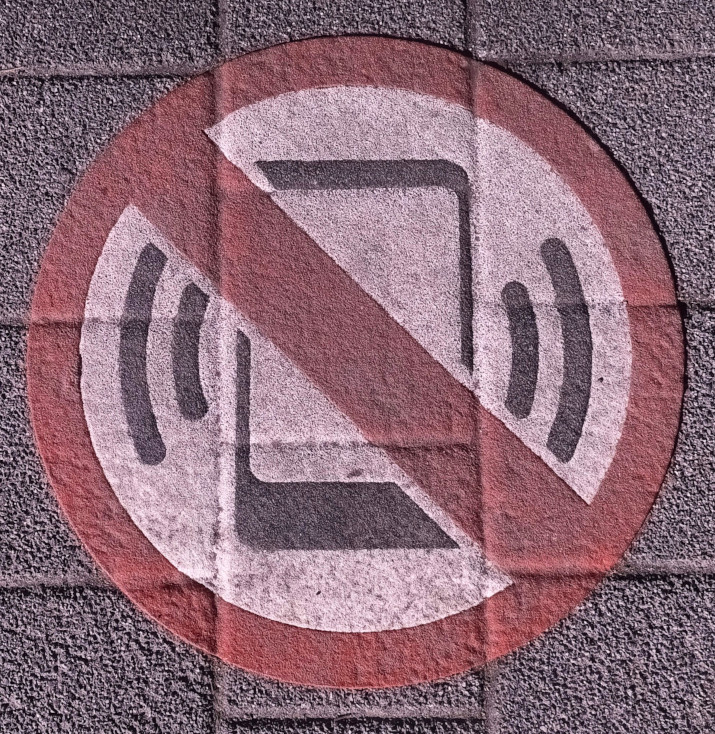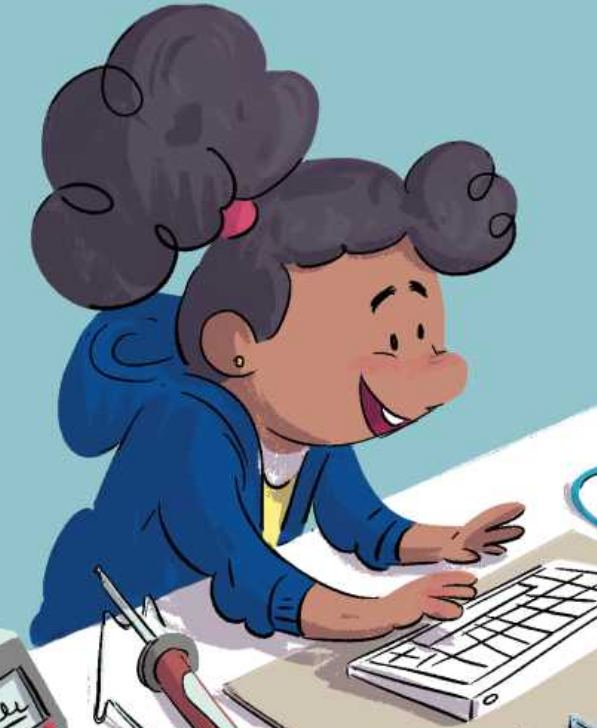
#1: Use your phone less and your computer more

There's a lot more free software for "regular" computers -- desktops and laptops. Getting into the habit of doing what you can away from your phone means you'll have a much easier time switching to free software later.
No judgement here, but if your parents have been on your case about you spending too much time on your phone you'll make them happier, too.
#2: Try free software that runs on Windows or macOS
Even if you can't switch to GNU/Linux right now, there's lots of free software work on Windows or macOS. You might have used free software without even realising it!
Popular programs that run on Windows or macOS include LibreOffice (https //libreoffice.org), the GIMP (https://gimp.org), Krita (https://krita.org), VLC (https://videolan.org) and Ardour (https://ardour.org).
#3: Talk about free software with your friends
You can help make change just by spreading the word! Don't be shy about sharing what you know with other people. If one of your friends asks you're not using some platform or why you use a free program, explain why. Who knows who you might inspire!
#4: Explore the Free Software Directory
The Free Software Directory is a guide to thousands of programs to do nearly anything -- all free as in freedom! Clear your schedule and go lose yourself in it at https://directory.fsf.org/.
#5: Make a poster for your school about free software
Making an eye-catching poster is a great way to tell people about free software. Ask your school librarian or teachers if you can put one up in a place lots of people visit!
I'd love to see your posters, especially if they go up. Send a picture to carmen@missionlibre.org and it might appear in a later issue!
#6: Write a letter about non-free software at school
You're probably being made to use non-free software at school. Wouldn't it be great if you could use free software instead?
Many school teachers and principals have never heard about free software. If you write them a letter, you could be the one to tell them about it!
I have to be clear: writing a letter won't make them change straight away. But it will at least let them know something else is possible.
#7: Teach your younger siblings about free software

If this were a perfect world, everyone would grow up being taught that sharing software is the right thing to do. That world doesn't exist (yet), but you can at least help you younger brother or sister learn about free software.
They might like Ada and Zangemann, a fun picture book about free software. Why not read it to them?
There are lots of free programs they might like. If they like making art, install TuxPaint for them (https://tuxpaint.org). GCompris (https://gcompris.org) is a fun way to learn maths, science and reading.
#8: Get your data out of the cloud
Some people like to say "the cloud is just someone else's computer!" They're right -- when you save your files somewhere other than your own device, you can no longer be sure it will never be deleted or no one else can see it! Unfortunately, non-free programs often push you into saving your files online.
There are lots of helpful guides online showing you how to save your data to your own device. Good phrases to search are 'program save data to phone' or 'program save data locally'.
#9: Notice how computers affect the world around you
Computers are everywhere, obviously. But have you thought about just how much they affect everything you do? As you're going about your life, take a minute to notice how computers fit into your day. When do we use them? Who makes the rules about how they're used? Who might benefit or be harmed?
#10: Keep your personal stuff off your school computer
Use your school computer as little as possible and never use it for personal stuff.
In many countries, schools use software to keep a close eye on what you're doing and look for signs you might be doing something dangerous or "anti-social". In some cases, art students and student journalists have been harassed for what they've had on their school computers.
The best computer to do things on is your personal one.
Learn more about how students in Kansas found themselves victims of school surveillance here: https://kansasreflector.com/2024/07/28/spyware-turned-this-kansas-high-school-into-a-red-zone-of-dystopian-surveillance/
#11: Learn a little about how programs are written
If you haven't done any programming at school yet, give it a go! You'll learn a lot about how computers work the way they do and why the four freedoms are what they are. There's an article on how to learn programming later in this issue, but if you just want to try for fun download Colobot (https://colobot.info/) and have a play!
#12: Ditch Spotify and other streaming "services"

Streaming "services" suck. They promise you a infinite ocean of music and movies, but it all comes with one awful catch.
To control how you use the music and movies streaming services like Spotify, Netflix or Hulu use something called DRM -- short for digital rights management. DRM exists to stop you from doing what you want with stuff on your computer. If DRM is going to work, you can't be allowed to have full control of your devices: you are the enemy.
If you can, buy your music and movies in a form you can hold in your hand. Once you've bought something in a physical format, you'll own it forever. You can lend it to friends and you can play it on whatever you want.
In later issues we'll talk more about how DRM works, why it's so nasty and how to live without it.
#13: Install F-Droid on your phone
F-Droid (https://f-droid.org) is an app store for Android phones that contains only free software.
Installing F-Droid is pretty easy. Popular Science has a convenient guide at https://www.popsci.com/diy/f-droid-download/.
#14: Ask your teacher if you can do your homework the old-school way
By 'old school', I mean on paper!
How successful you'll be with asking depends on exactly where you live and what's going on in your classes. If you're in a place like New Zealand you'll have more luck than if you're in the US. That said, there's no harm in trying (so long as you're polite!).
For this you're going to have to be a good student, sorry. If you slack off in class or don't hand in your homework in half the time, teachers aren't going to want to help you.
So remember to actually hand in the work, right?
#15: Try free software games
There are lots of great free games to try, more than I could possibly list here! Four of my own favourites are:
- Luanti: Luanti lets you build whatever you want in an (almost) infinite sandbox; it can be played like Minecraft if you want. Luanti has an incredible community, with lots of active servers and plenty of mods for the game. https://luanti.org/
- SuperTuxKart: Race karts on dozens of fun tracks! SuperTuxKart is fun for all ages. Invite your younger brother and sister to a game! https://supertuxkart.org/
- A Dark Room: You wake up in a cold, firelit room in a silent forest. A mysterious stranger stumbles in and collapses on the floor. What happened? How did you get here? Find out at https://adarkroom.doublespeakgames.com/
- FlightGear: Always wanted to be a pilot? Give FlightGear a go and see if you have it in you to fly! https://www.flightgear.org/
